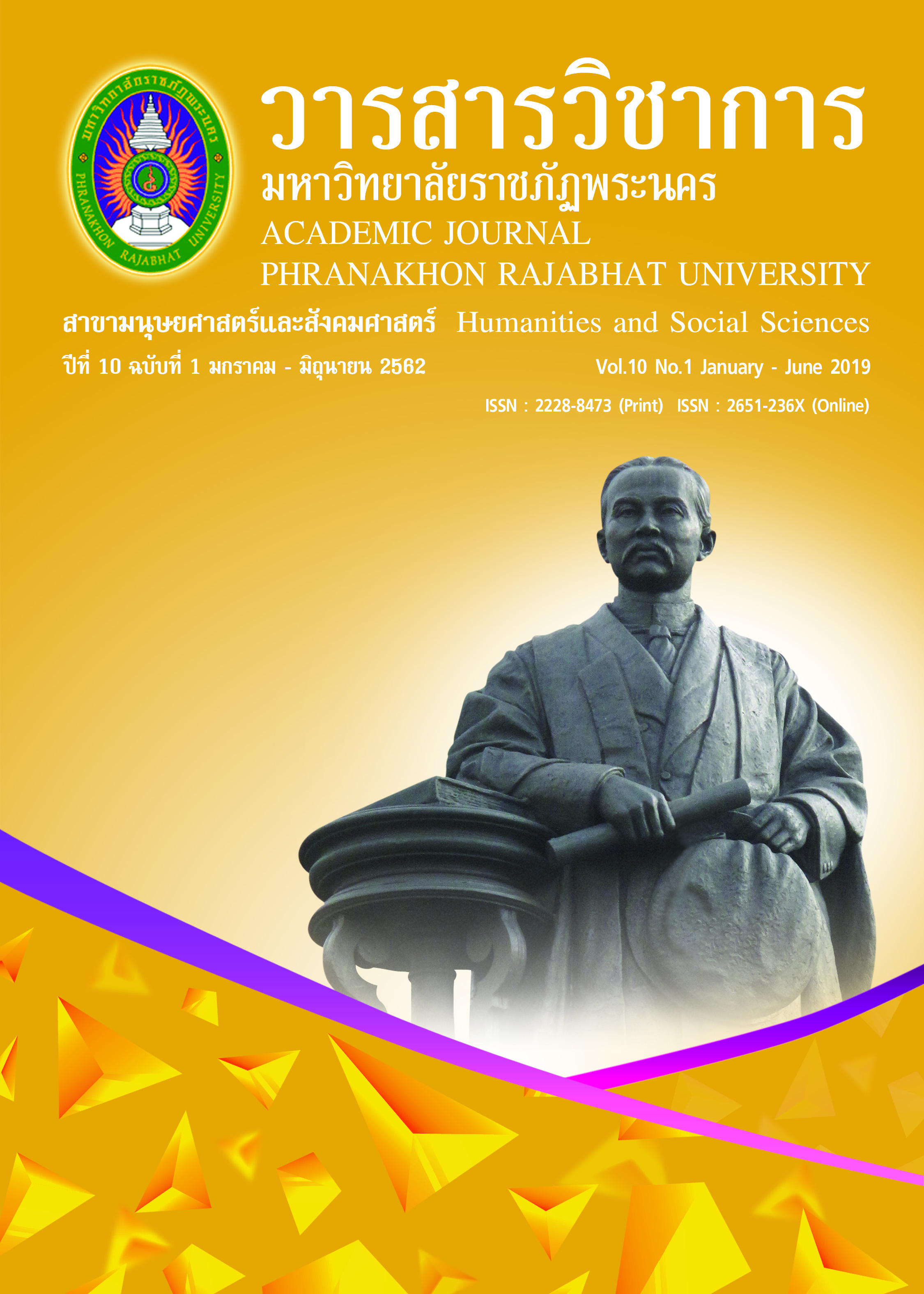GREEN SUPPLY CHAIN MANAGEMENT OF PROCESSING PACKED RICE ENTREPRENEURS IN THAILAND
Keywords:
Green supply chain management, Processing packed rice entrepreneursAbstract
The objectives of this research were: 1) to explore the structure of green supply chain management of processing packed rice entrepreneurs 2) to study on key factors contributing to green supply chain management of processing packed rice entrepreneurs and 3) to study on the supply chain management system appropriated for processing packed rice entrepreneurs. Data were collected from 80 processing packed rice entrepreneurs. The collected data were analyzed using descriptive and inferential statistics including percentage, mean, standard deviation, and factor analysis. The study showed that the processing packed rice entrepreneurs have a moderate understanding about green supply chain management. According to a factor analysis, the study found that there are 8 key factors contributing to the application of green supply chain management system of processing packed rice entrepreneurs. The 8 key factors are a factor related to rules and regulations, a factor related to customers, a factor related to raw material suppliers, a factor related to competitors, a social factor, a factor related to administrative supporting, a factor related to organizational strategies, and a factor related to image and motivation. Entrepreneurs need to build the knowledge about green supply chain and the practice contributing to the green supply chain standard under the eco-friendly production concept to create opportunities and competitive advantages for sustainability in the green industry.
References
Dornfeld, D., Yuan, C., Diaz, N., Zhang, T. & Vijayaraghanvan, A. (2013). Introduction to Green Manufacturing. USA: Springer.
Dhanda, K. & Peters, A. (2005). Reverse logistics in the computer industry. International Journal of Computers Systems and Signals. 6(2), 1-13.
Esfahbodi, A., Zhang, Y., Watson, G. & Zhang, T. (2016). Governance pressures and performance outcomes of sustainable supply chain management: An empirical analysis of UK manufacturing industry. Journal of Cleaner Production. 155(2), 66-67.
Ghazilla, R.A.R, Sakundarini, N., Abdul-Rashid, S.H., Ayub, N.S., Olugu, E.U. & Musa, S.N. (2015) Drivers and barriers analysis for green manufacturing practices in Malaysian SMEs: A preliminary findings. Procedia CIRP. 26, 658-663.
Hajikhani, M., Wahat, N.W.B.A. & Idris, K.B. (2012). Considering on green supply chain management drivers, as a strategic organizational development approach, Malaysian perspective. Australian Journal of Basic and Applied
Sciences. 6(8), 146-165.
Hervani, A.A., Helms, M.M. & Sarkis, J. (2005). Performance measurement for green supply chain management. Benchmarking: An International Journal. 12, 330-353.
Ketsing, V. (1995). Operation Research. Bangkok: Chulalongkorn University.
Prapagronvimon, S. (2009). Adaptation of Thai industry towards green logistics. Thesis Master of Science, Chulalongkorn University.
Rehman, M.A. & Shrivastava, R.L. (2011). An innovative approach to evaluate green supply chain management (GSCM) drivers by using interpretive structural modeling. International Journal of Innovation and Technology Management. 8, 315-336.
Shukla, A.C., Deshmukh, S.G. & Kanda, A. (2009). Environmentally responsive supply chains: Learnings from the Indian auto sector. Journal of Advances in Management Research. 6, 154-171.
Sunil, L., Dixit, G. & Abid, H. (2016). The impacts of critical success factors for implementing green supply chain management towards sustainability: An empirical investigation of Indian automobile industry. Journal of Cleaner
Production. 121, 142-158.
Vachon, S., (2007). Green supply chain practices and the selection of environmental technologies. International Journal of Production Research. 45, 4357-4379.
Walker, H., Sisto, L.D. & Bain, D.M. (2008). Drivers and barriers to environmental supply chain management practices: lessons from the public and private sectors. Journal of Purchasing and Supply Management. 14(1), 69-85.
Setthasakko, W. (2009). Barriers to implementing corporate environmental responsibility in Thailand: A qualitative approach. International Journal of Organizational Analysis. 17, 169-183.
Youn, S., Yang, M., Hong, P. & Park, K. (2013). Strategic supply chain partnership, environmental supply chain management practices and performance outcomes: An empirical study of Korean firms. Journal of Cleaner Production. 56, 121-130.
Yang, C., Lu, C., Haider, J. & Marlow, P. (2013). The effect of green supply chain management on green performance and firm competitiveness in the context of container shipping in Taiwan. Journal Transportation Research Part E.
55, 55-73.
Zhu, Q. & Sarkis, J. (2007).The moderating effects of institutional pressures on emergent green supply chain practices and performance. International Journal of Production Research. 45(18/19), 4333-4355.
Downloads
Published
How to Cite
Issue
Section
License
"บทความวิชาการในวารสารฉบับนี้ ถือเป็นความรับผิดชอบของผู้เขียนเท่านั้น"
สงวนลิขสิทธิ์ตามพระราชบัญญัติลิขสิทธิ์




